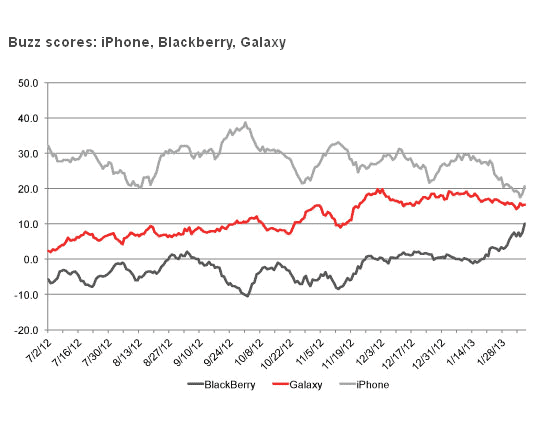The video is grainy, dark, and pixelated.
On stage, a man in his early forties wears a rumpled white sweatshirt with a black vest over top. He is addressing a audience of a several hundred people at the Park Plaza Castle auditorium, in Boston.
The man ambles to the side of the stage and pauses for a sip of water. He begins to talk about relationships. “Relationships that, uh, …that are destructive…” -he trails off. The crowd is uneasy. The man is contrite. He continues: “…don’t help anybody.”
The date of the video is August 6th, 1997. The man is Apple founder Steve Jobs. About five minutes later the image of another man’s face appears on a large video screen, dwarfing Jobs. It is, of course, Microsoft founder Bill Gates, who arrives by teleconference to a chorus of boos and announces that, after settling some differences, the companies will work together. Gates allows Jobs to save face by not laying plain what is actually happening; Microsoft is saving Apple from a near certain death with a $150-million investment.
Today, the late Steve Jobs isn’t just tech royalty, he has become a business legend. His perseverance , guile, and vision rescued the 1997 Apple, the Apple of the Newton, the Performa, the gaming console-slash PC, Pippen, and the $7,500 Twentieth Anniversary Macintosh, and allowed it to become the Apple of today, the most admired company in the world for four years running, according to Fortune.
As corporate comebacks go, Apple’s is legendary. Perhaps, because of the consumer nature of its business, even more legendary than Lou Gerstner’s turnaround of IBM in the early nineties, or Lee Iacocca’s reversal of Chrysler’s fortunes a decade earlier. It is more dramatic than Mark Hurd’s turnaround of HP, and more filmic that Anne Mulcahy’s rescue of Xerox. In June, a biopic called jOBS, starring Aston Kucher, James Woods and Matthew Modine began filming in Los Angeles.
__________________________
This story is brought to you by Serenic (TSXV:SER). Serenic’s cash position as of May 31st, 2012, $4.45-million, was greater than its market cap as of July 23rd, which was $3.64-million. The company has zero long-term debt. Click here for more info.
___________________________
Corporate turnarounds, while nearly always less sensational than Apple’s are, in fact, quite common.
A cursory search of the term on Amazon.com (which itself was “turned around” by Jeff Bezos) reveals hundreds of titles, including “Ruthless Execution: What Business Leaders Do When Their Companies Hit the Wall” by Amir Hartman, which walks us through Cisco CEO John Chambers guiding that company through the telecom collapse. There’s also “Leading Corporate Turnaround: How Leaders Fix Troubled Companies” by Stuart Slatter, which includes case studies from BT, Virgin Express, Arthur Andersen, Parmalat, and GE. And there’s “Leading Corporate Transformation: A Blueprint for Business Renewal” which Symantec CEO Gordon E. Eubanks, Jr. described as “the key tool Symantec has used to start the shift from being a technology-driven to a customer-driven company.”
What we learn from this titles, and the hundreds of others like them, is that turnarounds are normal. They are ordinary. The life cycle of a multi-billion dollar company often includes a Bête Noire, and sometimes several.
That’s why much of the current round of hysteria focusing on Research in Motion seems to be floundering in context-less vacuum. An article yesterday by Zach Epstein of the website BGR.com called “Jim Balsillie, Mike Lazaridis, and the giant with no legs” is a lament that has become familiar.
Former RIM co-CEOs Lazaridis and Balsillie, says Epstein “…had the genius and the prowess to build a giant, but they lacked the vision to give it legs.” Epstein continues by offering that RIM is bringing out its new operating system, BlackBerry 10, at exactly the wrong time. The move bears a striking resemblance he says, to webOS, an operating system initially developed by Palm, which was later acquired by Hewlett-Packard and then scrapped. Epstein says a directionless RIM is now likely too far behind the leaders to recover.
“The odds, sadly, are not good, and this wounded giant grows weaker with each passing day.” says Epstein. “Completely writing RIM off at this point is a mistake though — just ask IBM. Or Ford. Or Apple.”
And that final sentence is where Epstein’s article diverges from the pack, if only for a second. RIM’s critics, which have gathered and sharpened their knives as the company’s share price has plummeted do have a leg to stand on.
They are right that Lazaridis and Balsillie underestimated the impact of the iPhone on its business. They are right that RIM was slow to react with new products and had too many of them. They are right that RIM’s handling of these blunders was a PR nightmare.
But pairing one example of a business failure that is booked and done beside one that is not is a dangerous game. RIM’s new operating system, as Epstein argues, may turn out to be as unsuccessful as WebOS. But Apple itself should never have stolen back market share from DELL and HP after the epic failure of the Apple LISA. IBM should have gone the way of bankrupt PC maker Commodore, but it didn’t. RIM itself survived to make the BlackBerry only after stints making film editing equipment, giant LED signs and high tech toothbrushes.
Research in Motion, which now has a new CEO In Thorsten Heins, isn’t PALM, which rarely made money or had RIM’s massive subscriber base. Nor is it Nortel (which RIM is often compared to for the reason that they are both Canadian, presumably), which was mired in accounting scandals and expensive, ill-fated acquisitions. RIM’s critics may turn out to be right; the company may be in the midst of a prolonged swan song. But the BlackBerry-maker, which grew its revenue from $6 billion in 2008 to nearly $20-billion in fiscal 2011, may just as easily be in the middle of a garden variety, shrink-before-you-grow, fallow period, of which there are hundreds of documented cases.
Research in Motion’s numerous critics do have a leg to stand on. But they are in desperate need of both legs, so at least one can be grounded in the broader historical context of the company’s predicament.
Below: An excerpt from Mac World 1997
______________________
_______________________
Comment
Leave a Reply
You must be logged in to post a comment.





 Share
Share Tweet
Tweet Share
Share




none of the comparison offered are applicable in the mobile scenario, RIM is toast. Not completely apparent to flag wavers and blind believers. The only comparison that is appropriate is RIM and its text book failure to re launch.
Excellent. I have never seen bashing of a company like i have seen with RIM. It is relentless. Part of the reason is that it is a Canadian company. Another reason is that there is far too much media available now thanks to the internet and cable TV. They just fill up the pages and airtime with anything. Also, there are more amateur investors in stocks than ever before, and each one of them is now able to publish their opinion. And these so-called analysts – who have horrible track records that prove they know absolutely nothing when it comes to the future – get far too much respect and airplay from the content-hungry media.
There are so many amateurs who know almost nothing about business and/or RIM, yet their opinions are added to the heap. It is the most massive *PILE-ON* that I have ever witnessed. But I am a contrarian by nature. The more ridiculous the pile-on has become, the more I became convinced the crowd is wrong. RIM is not going anywhere. They will not run out of cash – though they will burn through some. They have a guaranteed revenue stream that most businesses would kill for (even if it is under pressure). They will put out BB10 and go from there. They have a number of options available to them for the future.
Palm posted profits what are you talking about?
RIM is rockin’ it again. While Apple falters and dies in 2013, RIM is about to shake up the industry with the best phone in 10 years. Its sad to see so many investors stay too long with a dying company like Apple. All you read today is that Apple will continue to grow because they are developing a TV. What a joke, they can’t get iPhone 5 out unless they are a year late, how can they make a TV? RIM is killing it now, the worst has been said by the shallow-minded bashers, that won’t stop reality from setting in and Apple dying away.
Why don’t you go play with Internet Explorer on your Mac cause Apple was a sellout! God, even RIM isn’t that Pathetic!
RIM will comeback further than Apple ever could!
I think the most relevant thing today, especially for RIM, that Jobs said was “it is important to undestand that for apple to exist it doesnt mean microsoft should loose.” Tooday for RIM to succeed it doesnt need apple to fail. the smart phone mkt has just started to evolve on a global scale. There is room for 4 players (IOS, Android, BB10,WP8) to be profitable.
If apple could do it, so can RIM. they are in a much better poistion than Apple was. Thor and his team have demonstrated that are ready to put up a fight and are not going down without a fight. im glad RIM didnt go android or WP8 way and instead choose to fight it out the hard way. these are signs of a great company. A company that can be trusted with a come back. After all why do we fall,……. to rise (Batman begins)
RIMPIRE will strike back.
LMFAO! did some one teach you how to dribble because you are as sharp as a NCAA game ball. I use a windows machine, galaxy nexus phone and a BB playbook. I would sell the playbook but it gets me passed the NY Times walled garden so I can read more than10 articles a month without a subscription because they dont recognize the the Playbook browser. If the NYT ever catches on I will switch to the Google Nexus tablet as the playbook doesnt support video skype or Plex streaming.
Not only are they having difficulty getting iPhone 5 out, the biggest “innovation” that is going around is the new dock connector. The iPhone story is actually following a familiar story here. Taking market position for granted, slow or no innovation, trying to sell by brand name alone…the RIM story all over, but this time it is Apple.